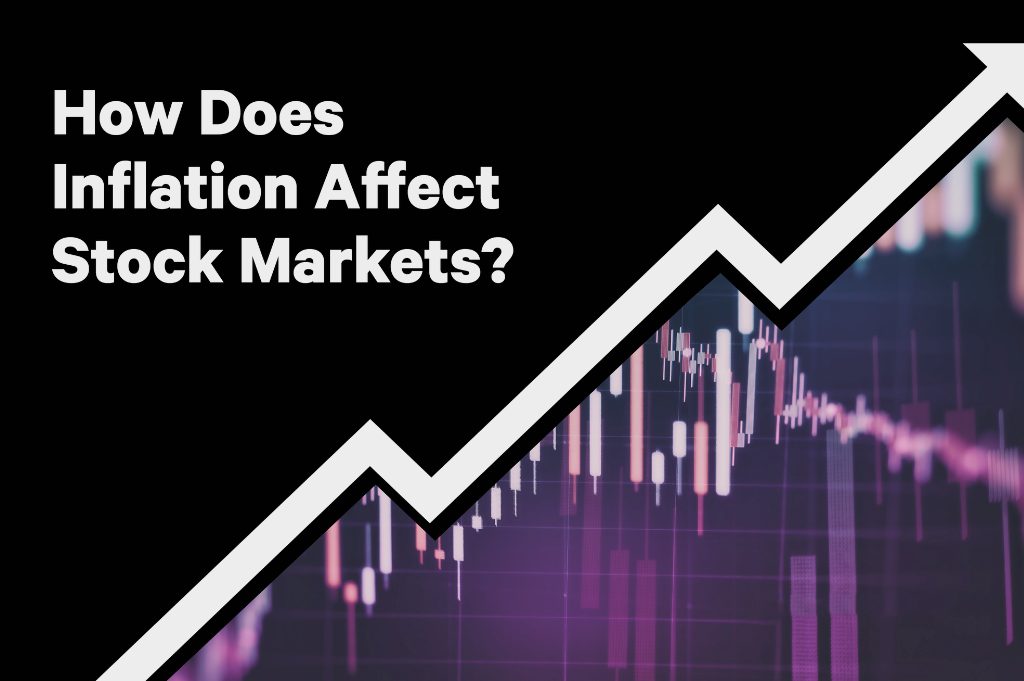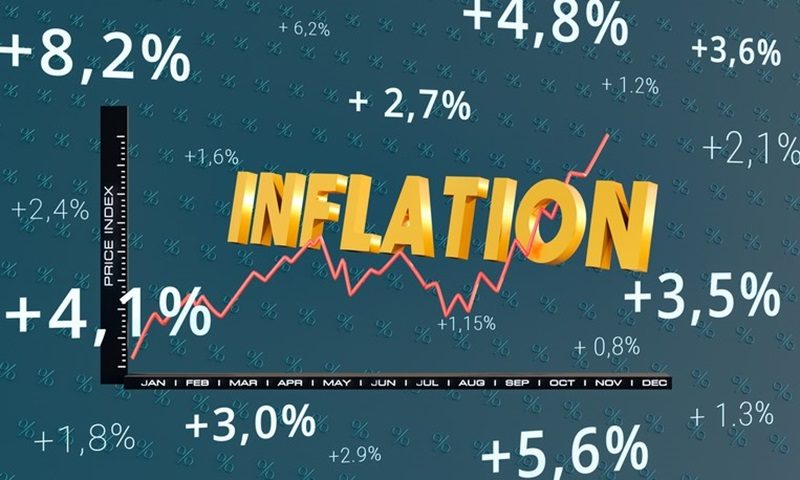In your wallet and at the market, you feel it—the pinch of higher costs. But how rising inflation affects stock prices hits investors hard. You’ve seen headlines scream about the rising Consumer Price Index (CPI), but what’s the real story? I’m cutting through the noise. We’ll dissect how inflation tweaks market dynamics, forces central banks to shift policy, and, yes, moves stock prices. Stick around, and I’ll show you how to navigate this bumpy financial landscape, find the stocks that stand tall when prices soar, and craft a wallet-wise portfolio ready for any inflation curveball.
Understanding the Impact of Inflation on Market Dynamics
Dissecting the Relationship Between CPI and Stock Prices
Inflation can feel like a thief. It sneaks into your wallet and takes value when you’re not looking. The Consumer Price Index, or CPI, tells us how much inflation is taking. Think of CPI as a big basket of stuff we all buy. When prices for things in that basket go up, inflation is on the move.
When CPI goes up, some folks get scared to spend money. They worry that costs will keep rising. So, they hold on to their cash. Companies that sell goods might not sell as much. When they don’t, their stock prices might fall because they make less money.
But wait, it’s not all bad news. Some companies can handle rising costs better. They might have special stuff that people keep buying, even if prices go up. These smart companies can actually do well when inflation ticks higher. As an investor, finding these companies can be like finding a treasure map in troubled times.
Reading Central Bank’s Monetary Policy Clues
Let’s talk about central banks, like the Fed in the USA. These banks decide if money should be more or less expensive. When inflation goes up, they might make borrowing money cost more. This is called raising interest rates. Think of it as turning down the money faucet. They do this to cool things off.
When the faucet gets turned down, loans for houses or businesses cost more. This can slow down how much money people spend. If people and businesses don’t spend as much, stock prices might take a hit.
On the flip side, if central banks think we can handle a little inflation, they might leave things be. Or they might even make money cheaper to help us buy and invest more. When people feel good about spending, stocks can go up.
So, when you hear about the Fed or other central banks meeting up, perk up your ears. They’re making calls that might change your stock prices. Understanding this can help you pick stocks that won’t get scared off by a little inflation.
Inflation changes how we all play the stock market game. Some prices go up, some go down; it’s all part of the action. By keeping an eye on CPI and what central banks are up to, you can get clues on how to play your cards right. And that’s how you win, even when prices are on the move.
Navigating Market Volatility Amidst Inflation Fluctuations
Identifying Sectors Sensitive to Inflationary Pressures
In times of high inflation, some sectors feel the heat way more than others. Think about anything that has to do with basic needs, like food, housing, and energy. These areas can pass on higher costs to customers easier. They are often better at dealing with inflation’s bite.
Now, let’s dig into tech and healthcare sectors. They don’t always do so well with inflation. They can’t just hike their prices like a piece of cake. They need more cash to grow and make new stuff. So, when prices climb and money’s worth drops, these sectors can suffer.
Strategies for Investing During High Inflation Periods
When inflation climbs, smart investing is key. It’s like a game – picking the right moves and knowing the rules can win the day.
First off, let me tell you about stocks that pay dividends. They are like your pals in tough times. These stocks give back cash you can use or reinvest. They can be a shield from inflation’s punch. Plus, they often come from firms well-placed to handle rising costs.
Next up are defensive stocks. These are your steady ships in stormy seas. Firms that deal with everyday goods or services. No matter what, people need to eat and keep the lights on, right? These stocks can stand firm when prices go wild.
It’s not all about stocks, though. Keep an eye on real estate and bonds too. Real estate can be a solid play. It often keeps its value and even grows when prices hike. Bonds, well, they’re tricky. Inflation can hurt them, but some types, like TIPS, are made for this. TIPS means Treasury Inflation-Protected Securities. They adjust with inflation, so you don’t lose out.
Now consider this – inflation isn’t the same for all stuff we buy. When folks talk about asset inflation versus consumer inflation, they mean that some things like houses or stocks might get pricer faster than milk or jeans. This matters because it tells us not all inflation hits your wallet or your investments in the same way.
Here’s one more bit for you – high inflation can come from cost-push or demand-pull. Cost-push is when stuff costs more to make. Demand-pull is when everyone wants to buy the same thing, so its price jumps. Knowing where inflation comes from helps with picking where to put your money.
Rising prices can shake the market. But if you know which areas get hit hardest and how to spread your bets, you could come out on top. Think of it as a way to shore up your future – to keep your money’s strength even when times get tough. It’s all about making choices that stay sturdy, even when money’s worth shifts.
Picture inflation like a rising tide. The trick for investors? Know your boat, find the best time to sail, and always keep an eye on the weather – in our case, that’s inflation. It’s about playing it smart and staying alert. So, you go in with a plan that’s tight and right for riding out the volatility waves. That’s how you win.
Analyzing Asset Performance in an Inflationary Context
The Dichotomy of Growth vs. Value Stocks in Inflation
Inflation can swing your stock gains up or down. Here’s the scoop. As prices rise, some stocks get hit hard. But not all act the same. Growth stocks usually mean tech and new firms. They aim for big growth fast. To do this, they reinvest profits. They might not make money yet. Value stocks, on the other hand, are often seen in established companies. They make steady money and may pay out dividends.
Now, why does this matter when prices go up? Well, growth stocks often borrow a lot. As inflation rises, so do interest rates. This makes their loans cost more. That can eat into growth and profits. Ouch.
But value stocks often have hard assets and cash flows now. This can help them in rough times. Plus, if they pay dividends, your pocket gets extra padding even when times are tough.
In simple terms, think of it like this. Growth stocks race for growth. High inflation makes it harder. Value stocks, though, can weather those inflation storms better. They have the cash and assets to hold on tight.
Assessing REITs and Fixed Income Securities Amid Rising Prices
Folks often ask me what happens to REITs when inflation hits. REITs own real estate. Think apartments, offices, and malls. When prices rise, they often can raise rents. This can protect you from inflation. Sometimes they even earn more when prices go up.
But, remember interest rates go up with inflation. That can make loans for REITs more costly. It can also make investors look at other places to get income, like bonds. This give and take can lead to tricky waters for REITs.
Then there’s fixed income. These are bonds and such. They pay a set return. When prices rise, the cash you get back buys less. That’s not so hot. Bonds can get less attractive because there’s better income out there with higher interest.
High inflation periods can be scary in bonds. The returns you were counting on shrink when you adjust for higher living costs. If you lock in a rate, and then inflation jumps, you’re stuck with less buying power.
To beat inflation, look at assets closely. Growth or value stocks? Cash payouts now or big future growth? Real estate with rising rents, or bonds with fixed income? Each has its own path in the dance with inflation.
Take this to heart. Inflation messes with market prices. But knowing how different bits of your portfolio can act gives you power. It lets you plan for what’s ahead. And that’s a must for anyone serious about their cash. The right move can help you keep pace, no matter how high prices jump.
Crafting an Inflation-Resilient Portfolio
Dividend-paying Stocks as Beneficiaries of Inflation
When prices rise, some stocks help you keep up. Think of dividend-paying stocks as friends that give you extra cash. They share their profit with you. In times of inflation, these extra payments can be very handy. They help you buy stuff even when prices go up. Let’s look at how dividend-paying stocks work when inflation hits.
Companies that have been around for a long time often pay dividends. When costs go up, these companies can charge more for what they sell. They may make more money because of this. Then, they can give some of that money to you, as dividends. Stocks that pay dividends can be safer in bumpy markets. They can also give you some money to fight the bite of rising costs.
But not all companies can do well in high inflation. We look for ones that can adjust well. They pass higher costs to customers without losing sales. These companies keep making good dividends. And you keep getting help to deal with the costs that keep going up.
Balancing Long-Term Investment Strategies with Inflation Hedging
Investing for the long run is smart. But you have to think about inflation too. You want to make sure your money grows more than costs rise. This keeps your buying power strong. It means your money can still get you a lot of things in the future.
Long-term planning with inflation in mind is key. We use some tricks to fight inflation with our investments. It’s like having a shield to protect your money’s muscle. Some people buy things that follow inflation, like TIPS, which stands for Treasury Inflation-Protected Securities. These are like loans to the government that go up in value with inflation.
Real estate can also be a good friend in these times. This might be by owning a house or investing in a group of properties through REITs, short for Real Estate Investment Trusts. Both can gain value when everything gets pricier. But be careful: real estate can also go down in value, so it’s not always safe.
There are other roads too. Some people like to own parts of many companies by investing in funds that spread their money across different kinds of stocks. This makes it less risky if one business hits hard times.
To hedge against inflation means to think ahead. It means to mix up your investments to stay strong, even when prices climb. You must watch the market, like a hawk watches the sky, and adapt when things change. If you plan well, you can keep climbing, even when inflation tries to weigh you down.
Inflation can make investing a bit scary. But with some smart moves, you can keep your money strong. Good investing is all about balance and being ready. It means looking out for what can grow your money, even when costs go up all around you. Now, go and make sure your portfolio is ready for whatever comes next!
In this post, we dug deep into how inflation shakes up markets. We first looked at how prices and stocks can move together and how to read clues from big bank policies. Then, we moved to handle the ups and downs inflation brings. We learned which business areas feel inflation the most and how to invest when prices soar.
We also dived into how different assets do when prices climb. Growth and value stocks don’t react the same way, and stuff like REITs and bonds have their own paths. Lastly, we talked about making a strong mix of investments that can stand tall against inflation. Stocks that pay out dividends can really shine, and it’s smart to combine long-term plans with shields against price jumps.
To wrap it up, getting inflation’s number and how it messes with your cash is key. Use what we’ve talked through to keep your money smart, even when cost of living hikes up. Stay sharp and your investments can thrive, even in wobbly times!
Q&A :
How does inflation impact the stock market?
Inflation can have several effects on the stock market. When inflation is high, the purchasing power of consumers decreases, which can reduce company sales and profits. Consequently, investors may sell off stocks, leading to a decrease in stock prices. Additionally, in a bid to combat rising inflation, central banks might increase interest rates, increasing the cost of borrowing for companies and consumers, which can further negatively affect stock prices.
Can high inflation lead to a stock market crash?
While high inflation alone does not guarantee a stock market crash, it can be a contributing factor. Sustained high levels of inflation can erode the value of money, reducing consumer spending power and corporate profits. This can lead to investor uncertainty, decreased stock demand, and potentially lower stock prices. Combined with other economic factors, such as high unemployment or weak economic growth, a significant inflation spike can increase the risk of a market downturn or crash.
Are some stocks more resistant to inflation than others?
Yes, some stocks are known to be more resistant to inflation. Typically, these are stocks from sectors that produce essential goods and services, such as utilities, consumer staples, and healthcare, because demand for these products persists even during inflationary periods. Additionally, companies with strong pricing power can pass increased costs onto consumers, thus maintaining profitability. Investing in stocks with high dividends or those involved in commodities can also provide a hedge against inflation.
What strategies can investors use to protect their portfolio against inflation?
To protect their portfolio against inflation, investors can diversify by incorporating assets with a history of inflation resilience, such as Treasury Inflation-Protected Securities (TIPS), commodities, real estate, and stocks of companies with durable competitive advantages and pricing power. Additionally, focusing on stocks that pay dividends can help offset some of the impacts of inflation on investments.
Why do stock prices often drop when the Federal Reserve raises interest rates to fight inflation?
Stock prices often drop when the Federal Reserve (Fed) raises interest rates because higher rates translate to greater borrowing costs for companies, which can lower profit margins and earnings. Consumer spending typically slows down as borrowing becomes more expensive, which can also harm business revenue. Investors may anticipate these Negative effects on earnings and sell stocks, leading to falling stock prices. Moreover, higher interest rates increase the attractiveness of fixed-income investments compared to stocks, causing some investors to shift their investments away from the stock market.






